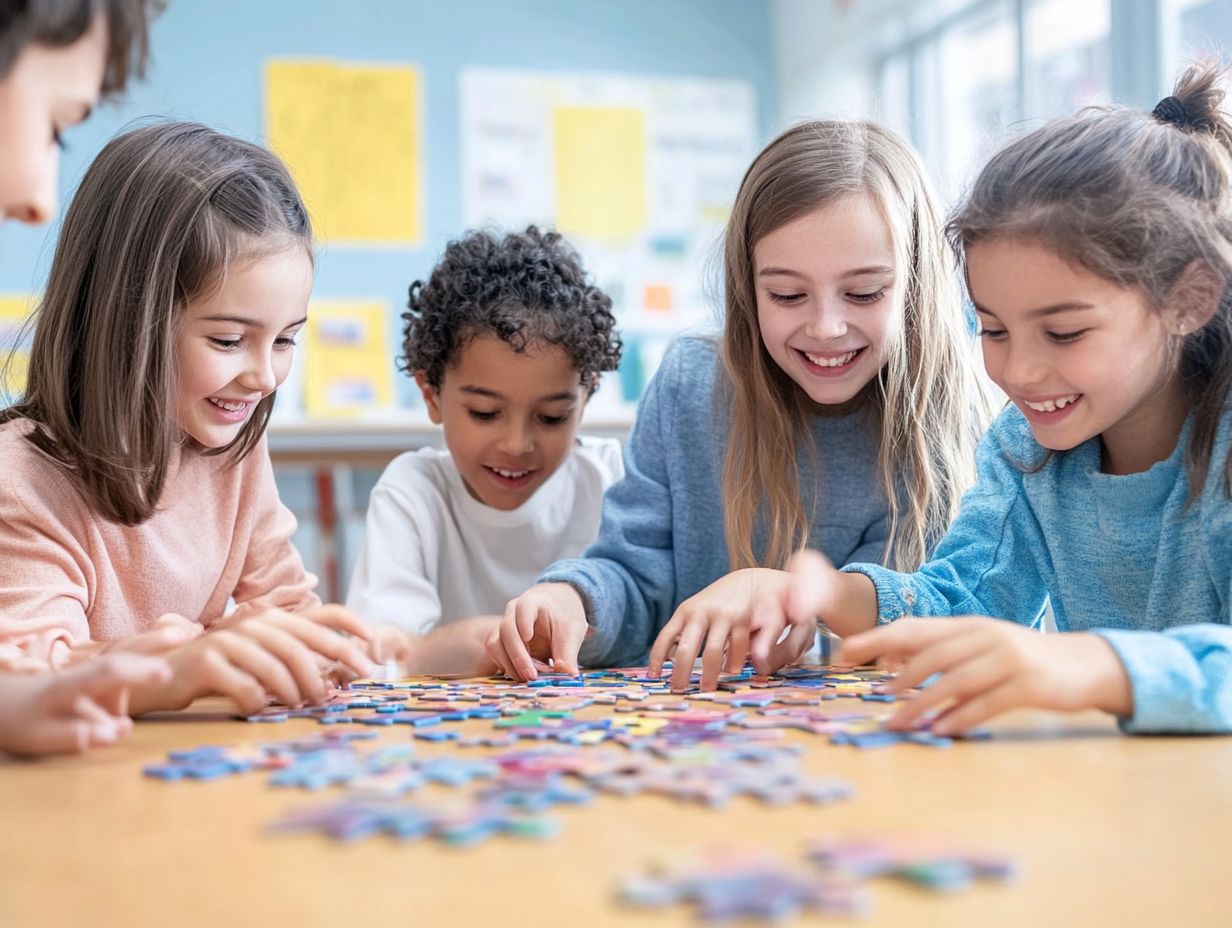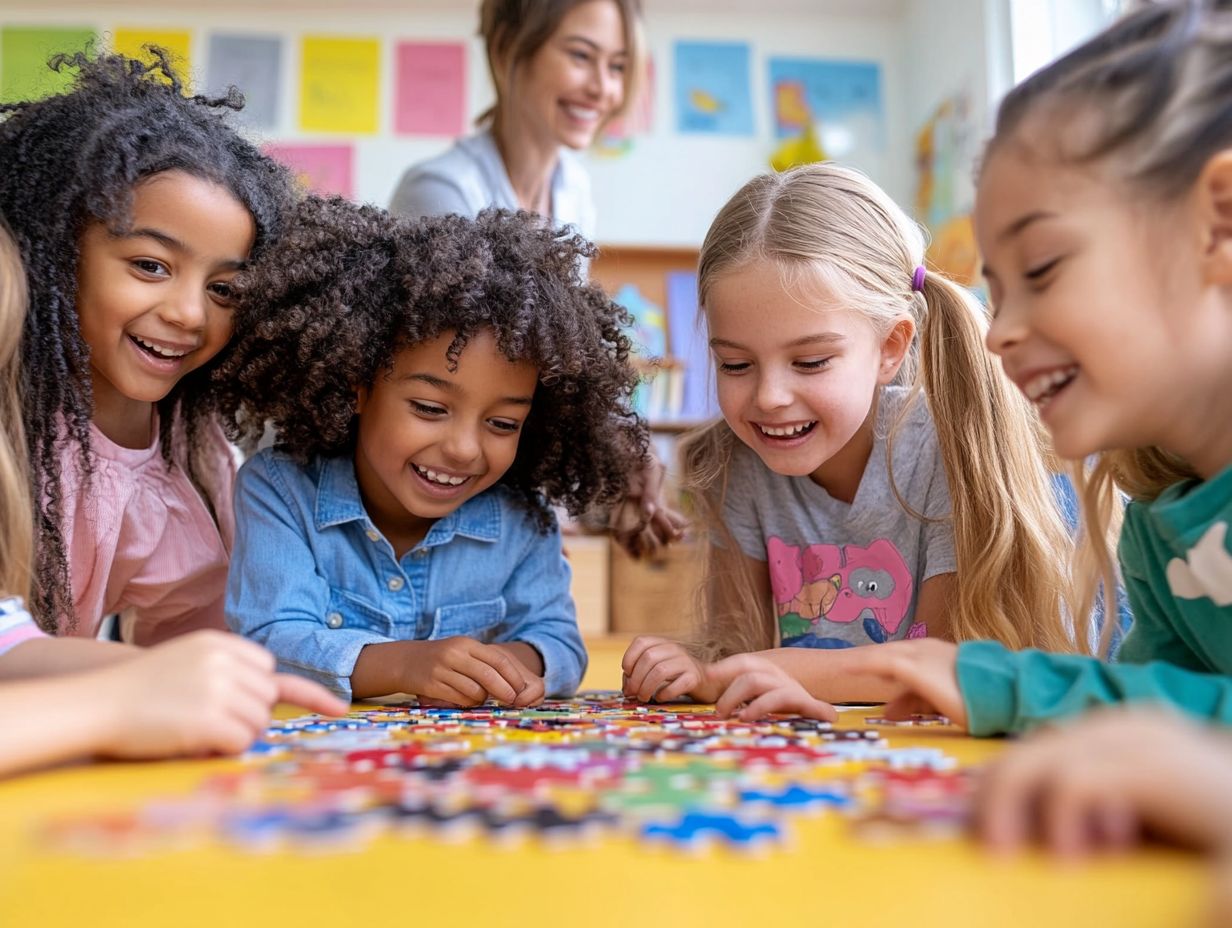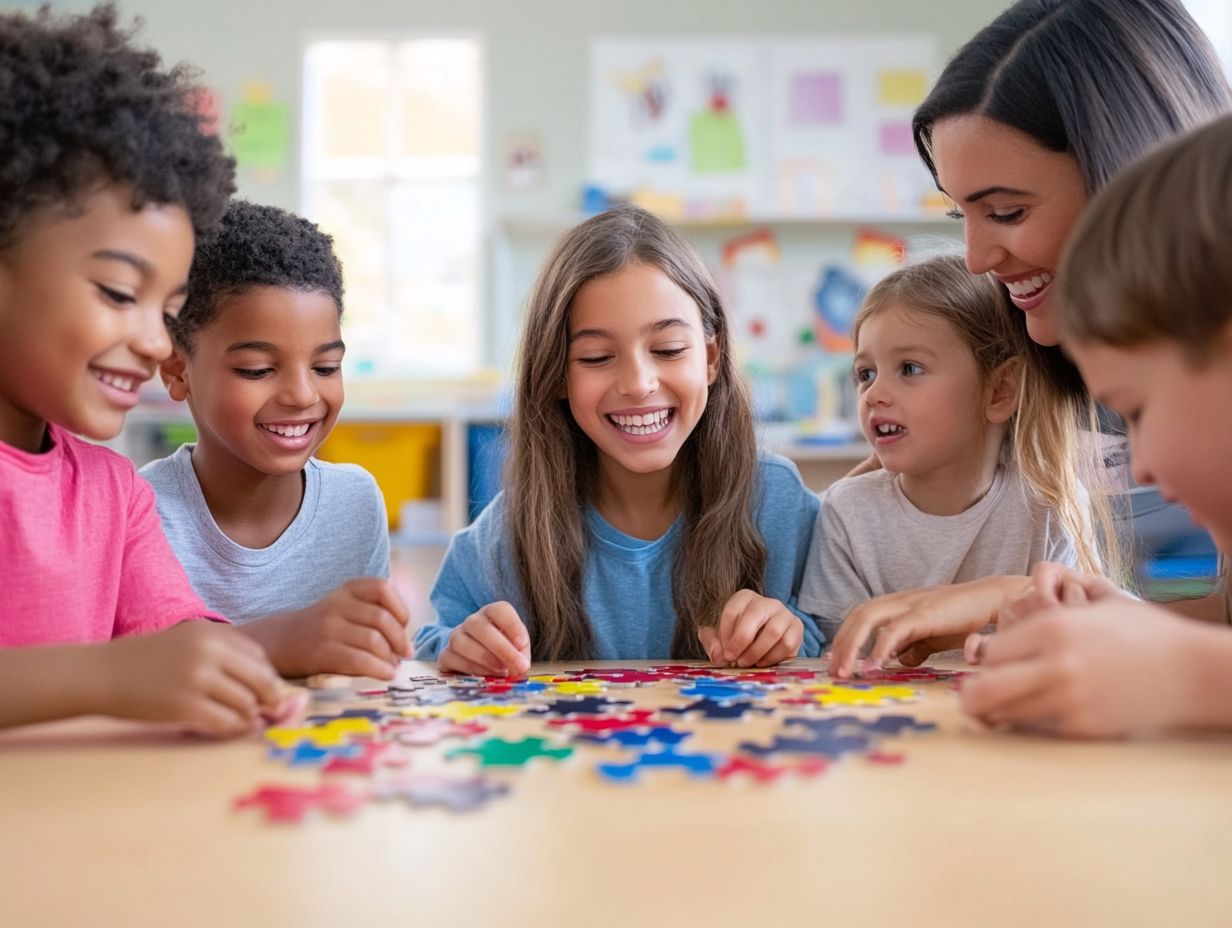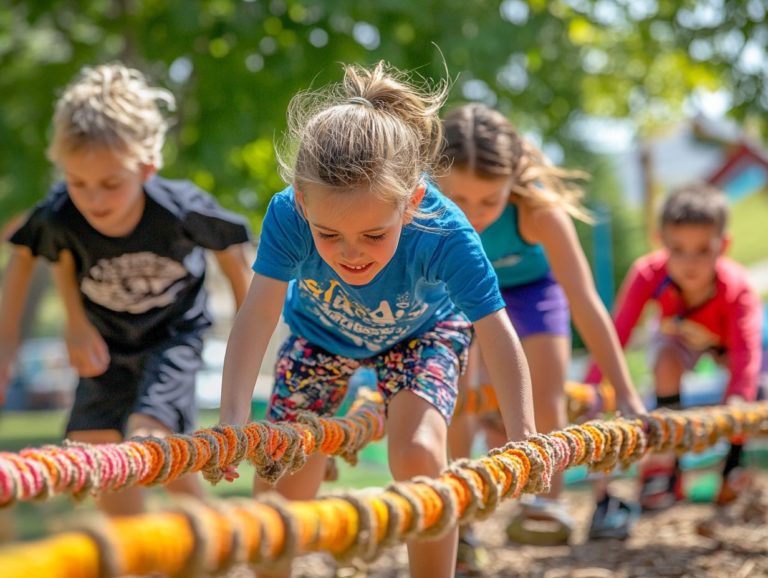How to Encourage a Growth Mindset in Kids
A growth mindset can fundamentally change how children tackle challenges, empowering them to embrace learning with enthusiasm instead of fear.
This article delves into the essence of a growth mindset and highlights its remarkable benefits for kids, including improved resilience and enhanced learning abilities. Let s dive in and discover how you can ignite a passion for learning in children!
You will also find practical strategies for parents and educators to cultivate this mindset, from encouraging persistence to modeling the right attitudes.
Additionally, you can discover engaging activities designed to promote growth thinking and celebrate progress.
Contents
- Key Takeaways:
- Understanding the Growth Mindset
- Benefits of a Growth Mindset for Kids
- How to Foster a Growth Mindset in Kids
- Activities and Strategies to Promote a Growth Mindset
- Frequently Asked Questions
- What is a growth mindset and why is it important for kids?
- How can parents encourage a growth mindset in their kids?
- What are some activities or exercises that can help foster a growth mindset in kids?
- How can teachers promote a growth mindset in their students?
- Are there any resources or tools to teach kids about growth mindset?
- What barriers can affect kids in developing a growth mindset?
Key Takeaways:

- Teach kids to embrace challenges and see them as opportunities for growth, instead of fearing failure.
- Model a growth mindset as a parent or educator by sharing stories of your own challenges and how you overcame them.
- Use activities like interactive games and exercises, and strategies like positive reinforcement and goal setting to promote a growth mindset in kids.
Understanding the Growth Mindset
Understanding the growth mindset is essential for educational leaders, parents, and teachers. It fundamentally influences how children tackle learning challenges and their personal development. Introduced by psychologist Carol Dweck, this concept stands in stark contrast to a fixed mindset, where individuals perceive their abilities as unchangeable.
By embracing a growth mindset, you enable children to see failures as valuable opportunities for growth. This nurtures resilience and emotional intelligence within the learning environment. This shift is supported by the idea that the brain can change and adapt through experience.
What is a Growth Mindset?
A growth mindset is the belief that you can develop your abilities and intelligence through dedication and hard work. This contrasts sharply with a fixed mindset, which assumes these traits are set in stone and unchangeable.
This fundamental difference profoundly shapes how you approach challenges and setbacks. Embracing a growth mindset means viewing difficulties as opportunities for learning and personal development. This perspective fosters resilience and adaptability in various situations.
You come to realize that mistakes aren’t failures; they are stepping stones toward improvement, encouraging continuous cognitive and emotional growth.
In educational settings, for instance, students with a growth mindset tend to persist when things get tough, actively seek feedback, and ultimately achieve higher levels of success. This perspective not only influences academic performance but also enriches interpersonal relationships and enhances overall life satisfaction.
Benefits of a Growth Mindset for Kids
The benefits of fostering a growth mindset in children are truly remarkable. It influences their resilience, academic performance, and overall success as students.
When kids embrace a growth mindset, they become more inclined to tackle challenges head-on. They learn to keep trying when things get tough and see failure as a valuable opportunity for growth.
This transformation bolsters their motivation strategies and nurtures their emotional development, reinforcing their belief in their own abilities.
Improved Resilience and Learning Abilities
Improved resilience and enhanced learning abilities are just a couple of the remarkable benefits that come with adopting a growth mindset. When children embrace this perspective, they begin to navigate learning challenges with a newfound intrinsic motivation.
In this framework, setbacks transform from sources of frustration into valuable opportunities for growth and understanding. By utilizing techniques like setting achievable goals, embracing constructive feedback, and engaging in problem-solving activities, young learners develop a sense of perseverance that will serve them well throughout life.
You can nurture this mindset by sharing inspiring stories of resilience and success, emphasizing the importance of effort and adaptability. Collaborative learning experiences also play a vital role; they provide children with the chance to support one another, which significantly boosts their confidence and creativity.
How to Foster a Growth Mindset in Kids

Building a growth mindset in kids takes teamwork from everyone involved parents, teachers, and leaders! Together, they can adopt effective teaching strategies and mindset activities specifically designed to nurture and promote the growth of young minds. Join us on this exciting journey to unlock your child’s potential!
Encouraging Effort and Persistence
Encouraging effort and persistence in children is vital for nurturing a growth mindset. By praising their efforts and using positive mindset phrases, you can significantly enhance their motivation.
When you recognize and celebrate the hard work that children pour into their tasks, you foster resilience and a genuine love for learning. Instead of fixating solely on outcomes, shift the focus to the process. Highlight the strategies they employ to overcome challenges. For example, say, “I noticed how much time you dedicated to that project, and it truly paid off.” This reinforces the importance of dedication.
Using phrases like “Mistakes help us learn” or “Every effort brings you closer to improvement” encourages children to see setbacks as valuable opportunities for growth. These praise strategies validate their efforts and instill a belief in their ability to develop new skills over time.
Teaching Kids to Embrace Challenges
Teaching kids to embrace challenges is essential for nurturing a growth mindset and enhancing their resilience throughout the learning journey.
By encouraging children to see obstacles as opportunities for growth, you help them cultivate a stronger belief in their abilities. One effective strategy is to introduce age-appropriate challenges, like solving puzzles or tackling a tough math problem. These activities stimulate engagement and build confidence.
Engaging in team sports or cooperative games reinforces the importance of collaboration and perseverance. It teaches kids how to navigate setbacks with grace. Incorporating reflective journaling, where kids write about their feelings and experiences, sharpens their understanding of both successes and areas for improvement. This practice ultimately enhances their emotional intelligence and problem-solving skills.
Modeling a Growth Mindset as a Parent or Educator
Modeling a growth mindset as a parent or educator is crucial. By demonstrating resilience and a positive attitude, you profoundly influence your children’s perceptions of their own abilities.
When you embrace challenges and view setbacks as learning opportunities, you impart a vital lesson: effort and perseverance are the cornerstones of success. Imagine a teacher sharing their struggles with a complex project, detailing the steps taken to overcome obstacles and achieve their goals.
As a parent, celebrate the learning process to inspire your children. Emphasize that mistakes are a natural and valuable part of growth. These approaches not only nurture your child’s confidence but also create an environment where curiosity and resilience can flourish.
Activities and Strategies to Promote a Growth Mindset
Try these fun and effective activities to boost your child’s growth mindset. Implementing targeted strategies can profoundly elevate student engagement, transforming your classroom into a supportive environment that nurtures both learning and personal development.
Fun Games That Spark Learning

Interactive games and exercises are powerful tools for fostering a growth mindset. They effectively engage you while promoting thinking skills and abilities.
These activities offer a dynamic approach to learning. They encourage you to embrace challenges and view mistakes as valuable opportunities for growth. For example, collaborative games like Escape Room puzzles create an environment where you work together with peers. This enhances critical thinking and hones problem-solving skills.
Engaging challenges like Math Bingo or Coding Quest allow you to visualize your progress. This reinforces the idea that your efforts lead to improvement. Such interactive experiences cultivate academic skills and foster social connections, ultimately elevating your engagement and motivation to learn.
Positive Reinforcement and Feedback
Positive reinforcement encourages you to embrace challenges and learn from failures. This nurtures a growth mindset and supports emotional development in children.
These essential components help create an environment where resilience can flourish. Constructive feedback helps children realize that they can develop their intelligence and abilities over time.
Implement strategies such as specific praise for effort, acknowledging progress, and setting achievable goals. These significantly reinforce positive behaviors.
By fostering a culture of open communication, you create a space for growth-oriented dialogue. This allows individuals to ask questions and seek help without the fear of judgment. Ultimately, this cultivates a lifelong love for learning.
Setting Realistic Goals and Celebrating Progress
Setting realistic goals and celebrating progress are fundamental practices that nurture a growth mindset. They motivate you to pursue your academic aspirations and enjoy the taste of success.
When you define clear, attainable objectives, you lay the groundwork for a sense of direction and purpose. This clarity helps you track your progress. Recognizing even small achievements reinforces your perseverance and resilience.
Consider these actionable strategies:
- Break larger tasks into manageable steps.
- Check in regularly to assess your achievements.
- Celebrate milestones, even small ones, like a high-five for homework completed.
This combination of structured goal-setting and joyful acknowledgment creates an environment where challenges transform from obstacles into opportunities for growth and learning.
Check out this video for more tips on fostering a growth mindset!
Frequently Asked Questions
What is a growth mindset and why is it important for kids?
A growth mindset is the belief that one’s abilities and intelligence can be developed through dedication and hard work. It is important for kids because it promotes resilience, perseverance, and a positive attitude towards learning and challenges.
How can parents encourage a growth mindset in their kids?

Parents can encourage a growth mindset by praising effort not just results providing opportunities for kids to try new things, and modeling a growth mindset themselves by showing their own willingness to learn and improve.
What are some activities or exercises that can help foster a growth mindset in kids?
Activities such as problem-solving tasks, goal-setting, and reflecting on past mistakes can help encourage a growth mindset in kids and can be complemented by learning how to teach resilience skills to kids.
How can teachers promote a growth mindset in their students?
Teachers can promote a growth mindset by providing specific and constructive feedback, creating a safe and supportive learning environment, and encouraging students to take on challenges and learn from their mistakes.
Are there any resources or tools to teach kids about growth mindset?
Yes! Incredible tools are available, including books, games, and online activities.
These can help introduce and reinforce the idea of a growth mindset in kids.
What barriers can affect kids in developing a growth mindset?
Barriers include saying bad things to yourself, fear of failing, and focusing too much on fixed traits.
Addressing these barriers can help kids see the value of a growth mindset and overcome challenges.






